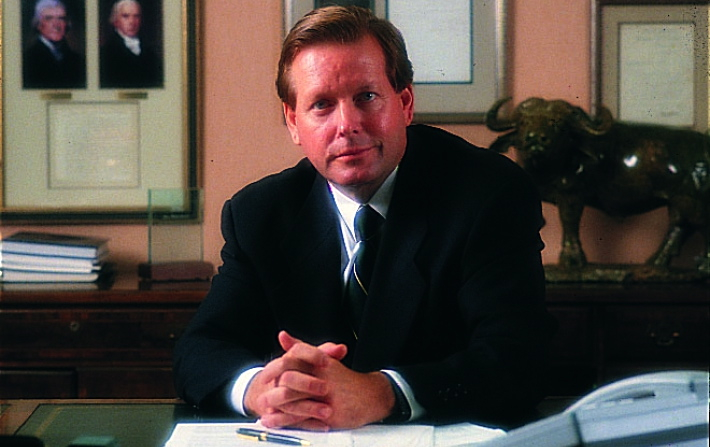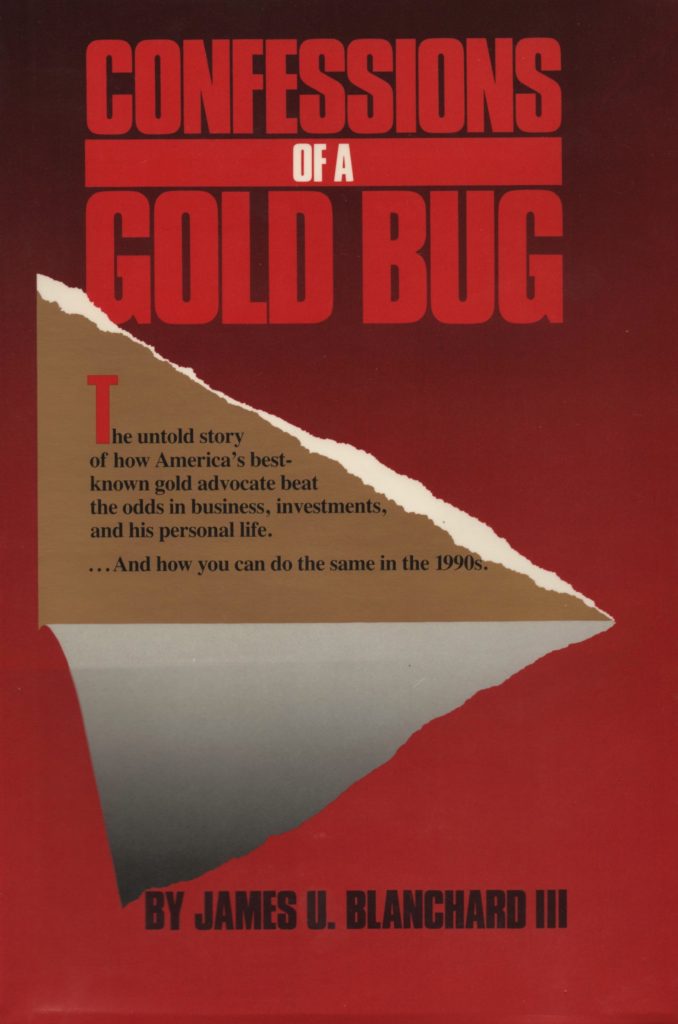
The Heroic Gold Bug You Never Heard Of
The Heroic Gold Bug You Never Heard Of https://fergushodgson.com/wp-content/uploads/2023/01/jim-blanchard.jpeg 710 447 Fergus Hodgson Fergus Hodgson https://secure.gravatar.com/avatar/abc4f612eeb70d684c156dd1398fdf06?s=96&d=mm&r=gJim Blanchard Ended the Federal Ban, Won His American Dream
When we hear of sound money, the gold standard, and precious-metals investing, various names come to mind: Murray Rothbard, Ron Paul, Doug Casey, Mark Skousen, and Harry Browne. There is, however, one man who can take almost single-handed credit for the 1974 legalization of gold ownership in the United States: James “Jim” Blanchard of New Orleans, Louisiana (1943-1999).

Such were Blanchard’s larger-than-life adventures and advocacy endeavors spanning the globe, his low profile is both a surprise and a shame. I only came across his story fortuitously by living in New Orleans and attending the annual investment conference he started there all the way back in 1971.
The good news is that his outlook on life, gold, and the American dream is preserved in his conversational 1990 autobiography, Confessions of a Gold Bug (much of it dictated).
Futher, his son Anthem, to whom the book is dedicated, is one man who has not forgotten. He is taking on the new frontier of currency, promoting gold-backed digital units through his precious-metals storage company, Anthem Vault.
What makes Blanchard’s story particularly unique is that he was paralyzed in a car accident at the age of 17. Already he had an affection for US history and ideals, but the rehabilitation — including a year in Mexico — catalyzed that by giving him time to read.
He decided to become a history teacher, while pursuing ventures on the side, both political activism and a foray into investment with his own bulletin. Eventually the job gave way entirely to his precious-metals business, and this entrepreneurial rise is the dominant theme in Confessions. He even includes a chapter titled “Your Business Is Your Best Investment.”
Beyond his business prowess, though, there is the story of a man who took on what appeared to be invincible opponents in the US federal government and the Federal Reserve. Blanchard’s innovative civil disobedience and diversified outreach — as a young man ahead of his time — managed to embarrass federal legislators into lifting the ban on private gold ownership.
During President Richard Nixon’s second inauguration, for example, he contracted a plane to fly over the scene with the words “Legalize Gold.” And a friend smuggled in a gold coin from Canada that he displayed at all protests, daring police to arrest him and show the absurdity of the law.
But the legalization effort was just the start. Blanchard yearned for a return to the hard currency set forth in the US Constitution, and free-market capitalism in the nation that he loved. (See Fixing the Dollar Now by Judy Shelton for concise analysis on the breakdown and potential revival of sound money.) In that vein, he brought together both academic leaders and the most prominent gold bugs of the era to brainstorm at his conferences.
From Friedrich Hayek and Milton Friedman to Edward Harwood, a mentor who founded the American Institute for Economic Research in 1933, Blanchard seemingly spared at nothing to attract the top thinkers of the day. In fact, Ayn Rand gave her final speech at his 1981 event, and he writes with poignancy about his meeting with the lady whose novel title became his son’s name.
Of course, a lot has happened since 1990, so much of the later parts of the book have become out of date. One can easily skip his chapter on the various crises of the 1990s, and you’ll have to look elsewhere for new developments such as cryptocurrencies.
But the value in Confessions is not so much in its practical advice for aspiring investors and businessmen. Rather it is in offering inspiration, from a man who has risen from depths to achieve both noteworthy success and a life to be reckoned with. His tales range from Central America to Africa to the Arctic, and one of his unconventional tips for success is “mixing business with pleasure.”
All the while, he wants readers to be aware of what motivates him and of the threats to the American dream. Collectivism is the “root enemy,” he writes, and his example shows how each person can stand as a defiant and proudly self-interested individual. Although he died in the 1990s, his book remains as a gift and invitation — including a long list of recommended publications and organizations — to the next generation, those willing to carry on the banner.
- Posted In:
- Economics
Fergus Hodgson
Fergus Hodgson is a financial economist, endurance coach, and lifelong athlete.
All stories by: Fergus Hodgson
